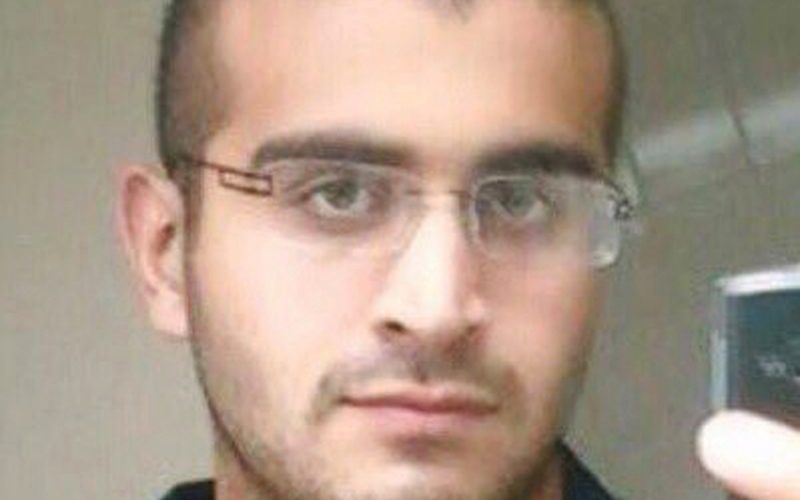
FILE – This undated image provided by the Orlando Police Department shows Omar Mateen, the suspect in the Sunday, June 12, 2016 mass shooting at the Pulse gay nightclub in Orlando, Fla. (Orlando Police Department via AP)
The massacre in Orlando was carried out as an act of rage. By a man. Who had access to military-grade weapons. And had unmet mental health and trauma needs.
Until or unless we make the murderer’s gender a central part of not just this story, but of the larger effort to prevent mass shootings (that have traditionally solely focused on gun control and mental health), we won’t succeed in preventing such horrors in the future. We have talked about nearly all those other factors: access to guns, his mental health, his homophobic views. What about the manhood part?
Make no mistake; there is much to unpack in the Orlando tragedy, beginning with questions about Omar Mateen’s sexual orientation. Was he as confused about his possible gay identity as he was about supporting three competing terrorist organizations? Despite the complexity of this story—the achingly painful attack on both the LGBTQ and the Latin@s and Latinx communities—we must not allow Mateen’s male identity to be obscured. Well before the Columbine murders in Colorado in 1999, like-minded colleagues and I penned dozens of columns underscoring the centrality of gender in mass shootings.
It’s no secret that similarities abound among male shooters: lonely and isolated, disaffected and alienated; often failing to forge strong ties with their families and communities. Whether Adam Lanza in Sandy Hook, or James Holmes in Aurora, disturbed young men were the murderers. No one questions that fact. But not questioning doesn’t mean ignoring the implications. Imagine if the shooter had been a woman; wouldn’t that have been the headline in The New York Times; the lead on CNN?
Prevention strategies must continue to include a vigorous pursuit of stringent gun control measures and a call for increasing mental health services—as well as sanding up to the NRA. Still, to ignore gender in mass shootings is like expecting a three-legged stool to stand on two legs.
In April I shared with an aide to Sen. Richard Blumenthal (D-Conn.) my proposal that Congress appropriate funds for the Centers for Disease Control and Prevention to undertake a multi-year inquiry of a diverse cohort of preschool boys across the U.S. The goal? To cultivate boys’ emotional intelligence and to oversee a comprehensive effort that A) addresses the pressure boys feel to perform conventional masculinity; and B) articulates a new expression of maleness that emphasizes compassion and vulnerability, and collaboration and cooperation, over competitiveness and emotional stoicism. It’s high time we teach boys a language most males have only a rudimentary awareness of: Emotionalese.
Now is the time for a PBS Frontlines investigation on a society regularly producing crops of psychologically damaged, angry, isolated men. Now is the time for clergy to deliver sermons about emotionally arid men, thirsting for waters of connection and the sunlight of compassion. Now is the time for school nurses to work with educators in tracking moody eight- and nine-year-old boys. Now is the time to train homeroom teachers to identify alienated middle-school boys. Now is the time for guidance counselors to reach out to shut down, high school-age young men. Now is the time for university health center staff to learn how to counsel loner male college students. Now is the time for community social workers and human resources staff to learn how to work with unemployed and underemployed 20-something at-risk men.
Imagine all of these groups working with doctors, nurses, and mental health professionals in a coordinated campaign overseen by the CDC. Isn’t this strain of men’s violence a public health crisis the CDC should confront as seriously as it’s addressing the Zika virus?
Even if we had taken all these steps years ago, we might not have been able to prevent Omar Mateen’s murderous rampage. But if we don’t begin employing strategies like these, rest assured another mass shooting will happen again. And again. And soon.
Rob Okun is a psychotherapist practicing in Amherst, Massachusetts and the editor of Voice Male, a national magazine chronicling the transformation of masculinity. He writes for PeaceVoice.



